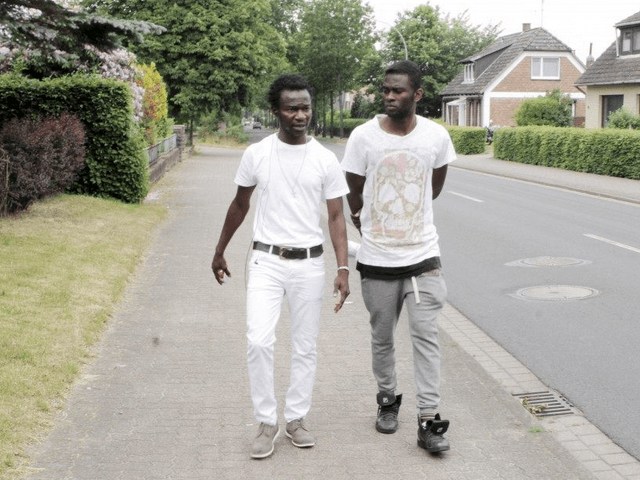Villagers in a tiny, rural area of Lower Saxony in Germany, are demanding answers after it transpired that their village with a population of just a few hundred will be forced to accept one thousand migrants due to Angela Merkel’s decision to throw open her country’s borders.
The main questions they ask are: why here, why us, and why now? The village is on a minor road lined with traditional half-timbered bungalows, vegetable gardens and farms with almost no infrastructure or local shops for daily needs. There are empty office buildings where the refugees are to be accommodated but aside from pasture and apple orchards, that’s about it.
A packed public meeting was held last night in Sumte to discuss local concerns over the migrant influx and Spiegel Online reports that it didn’t go well.
The town hall was the venue. It began with the mayor and local officials expressing utter surprise that anyone could possibly be worried by so many newcomers. “I did not expect so many interested residents,” the mayor began as an official from the Lower Saxony Ministry of the Interior looked on. Uproar followed.
More questions came from the floor. Locals wanted to know how sewage and waste disposal would be regulated and whether a shuttle service for the refugees would be provided so that they could go shopping.
“How do we protect ourselves against crime?”was another question. A woman asked “if medical care is guaranteed for the protection of all of us”. From a corner of the hall somebody pointed out that there were mainly single, young men arriving on the town’s doorstep and would it be safe to leave the house after dark. Oh yes, the mayor assured them, “the street lights will remain on all night”.
Some 450,000 migrants have arrived in Germany already this year. The country is expecting at least 1.5 million in 2015, by far the most across the 28-nation European Union. What is happening in Sumte is symptomatic of events all over Germany as Angela Merkel’s policy-on-the-run meets the people who will have to live with the consequences.
In Lower Saxony, the pressure to find accommodation is strong, the Interior Ministry explained to the meeting. Last year, almost 19,000 asylum applications were received, in 2015 there were already more than 75,000. Homes had to be found and the tenor of the meeting was that anyone who opposed that flow was xenophobic.
“Thousand are just too many”, resident Dirk Hammer told the meeting. His family has lived for 400 years in the village. He wants as many as a “reasonable solution” would allow to “minimize disruption” but ultimately the feelings expressed were that residents were not consulted and now they were being forced to accommodated over 1,000 people in a village that has never been home to more than 100.

COMMENTS
Please let us know if you're having issues with commenting.